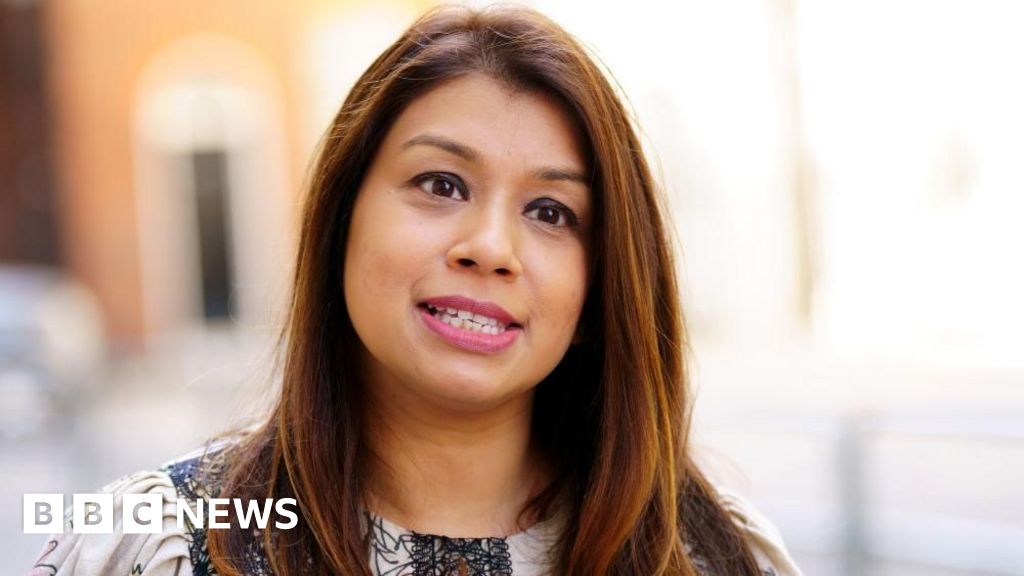ARTICLE AD BOX
WATCH: Sturgeon 'wrestling' with decision to resign for weeks
By Chris Mason
Political editor, BBC News
Nicola Sturgeon is the most experienced political leader in the UK.
When she became First Minister of Scotland, the prime minister and the man who hopes to be the next prime minister weren't even MPs.
Nicola Sturgeon replaced Alex Salmond in 2014. Rishi Sunak and Keir Starmer were first elected to the Commons in 2015.
In an era of what has often felt like near permanent political revolution, the churning in and then churning out of leader-after-leader, there has been what has felt ,in contrast, like a near permanent leader of the Scottish government.
Should we be surprised she's going? Privately, talk of her departure has not been dismissed out of hand for some time.
But many thought it might come after the next general election. Not out of the blue like this.
So, how should the leadership of Nicola Sturgeon be assessed?
She was the beneficiary of defeat.
Not just any defeat, but the defeat in 2014 of the defining thrust of her political instinct, the desire for Scottish independence.
The rejection of this in the referendum of almost a decade ago is what led to her predecessor Alex Salmond's departure and a turbo charging of the Scottish National Party's political fortunes.
For while 45% of the vote equals losing in a referendum, a figure anywhere near that in a conventional election equals overwhelming success.
And so from defeat came dominance - the SNP holding the vast majority of the Scottish parliamentary seats at Westminster, and the SNP remaining in government in Scotland beyond the point that political gravity usually catches up with any party.
Remember, the party first went into government at Holyrood in 2007.
And the SNP remains, for now at least, the overwhelmingly dominant force in Scottish politics.
But here's a striking contrast: this politician who was a beneficiary of defeat was also a failure in victory.
Winning elections, one way or another, again and again, didn't bring about independence, or even another referendum.
The SNP argue this is a democratic outrage.
But the truth is, whether you believe it amounts to that or not, delivering on that defining mission was slipping further and further away.
Meanwhile, as Labour surged in the UK-wide opinion polls, that calling card to a chunk of the Scottish electorate - you end up with Tory governments you haven't voted for - began to look like it might expire at the next general election.
And meanwhile, political problems stacked up: the NHS and schools, the thunderously angry row about trans rights upon which the first minister seemed increasingly lacking in the sure-footedness so many associate with her.
Then there are the ongoing questions about the first minister's husband giving the SNP a £100,000 loan. Peter Murrell is also the chief executive of the party.
There are those who privately think the scrutiny of this still to come would have proved deeply uncomfortable for a serving first minister.
So, what next? First, there'll be some space for Nicola Sturgeon's reflections on public life - politics can be "brutal" she says.
It reminded me of Tony Blair's remarks as he prepared to leave office 16 years ago when he "talked of the media as a 'feral beast".
In that, there are reflections for all of us involved in public discourse.
Of course, there are critics of the first minister who will say her very desire for independence having lost a referendum on it was divisive, others that to deny another one is exactly that too.
The SNP must now find, and quickly, a replacement.
It is far from obvious who that will be.
What does feel clearer is that Nicola Sturgeon's political opponents are relieved she is going - and that is a compliment to her.
Many who want to see the union preserved have longed for this day for some time, convinced her replacement won't be anywhere near as effective.
For now, a huge figure in Scottish politics and a big figure on the UK political stage prepares to depart, and Scotland prepares for new political leadership.

 1 year ago
35
1 year ago
35








 English (US) ·
English (US) ·